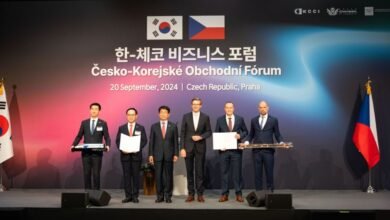Saic launches fuel cell system; SunHydrogen and MSC partner
The M4 fuel cell stack platform is compatible with both passenger and commercial vehicles.

Shanghai Hydrogen Propulsion Technology Co (a subsidiary of Chinese automaker Saic Motor) launched the M4 fuel cell stack platform.
It also launched the M4 stack platform-based Prome M4H fuel cell stack and Prome P4L and P4H fuel cell systems. Shpt, which is backed by Saic, specialises in developing and manufacturing fuel cell stacks and systems. Shpt has independently designed and developed the newly-unveiled Prome M4H fuel cell stack, and its 44 primary components are made domestically. The fuel cell stack is of the same world-leading standard as those made by Toyota.
Due to its highly integrated design, the Prome P4H fuel cell system is smaller and more powerful, boasting a volumetric power density of 1020 W/L and mass power density of 722 W/kg. In addition, the system also has vehicle-level anti-shock and anti-vibration performance with an ingress protection rating of IP67.
The M4 fuel cell stack platform-based fuel cell products’ power ranges from 30 kW to 230 kW and is compatible with passenger and commercial vehicles. The supply of Shpt-made fuel cell stacks/systems is expected to exceed 4,000 units/sets this year and next.
In another development, SunHydrogen and MSC Co. Ltd of Korea have partnered where MSC will start reproducing SunHydrogen’s electrolyte chemistry in an industrial setting to validate their capability for mass manufacturing.
In the first stage, the manufactured electrolytes will then be sent to SunHydrogen’s lab in Iowa to validate MSC’s efficacy in electroplating the PAH components at the same quality achieved at the lab scale. Photoelectrosynthetically active heterostructures (PAH) are the foundation of SunHydrogen’s nanoparticle technology, in which billions of PAH nanoparticles split apart water at the molecular level. The validation process will provide an important database for manufacturing the PAH components in different locations while maintaining their high quality.
The second stage of the partnership will involve the electrodeposition of semiconductors on SunHydrogen’s proprietary substrate in an industrialised set up to evaluate the results to ensure that the PAH components are of the highest quality in this mass-scale electrodeposition setting.
